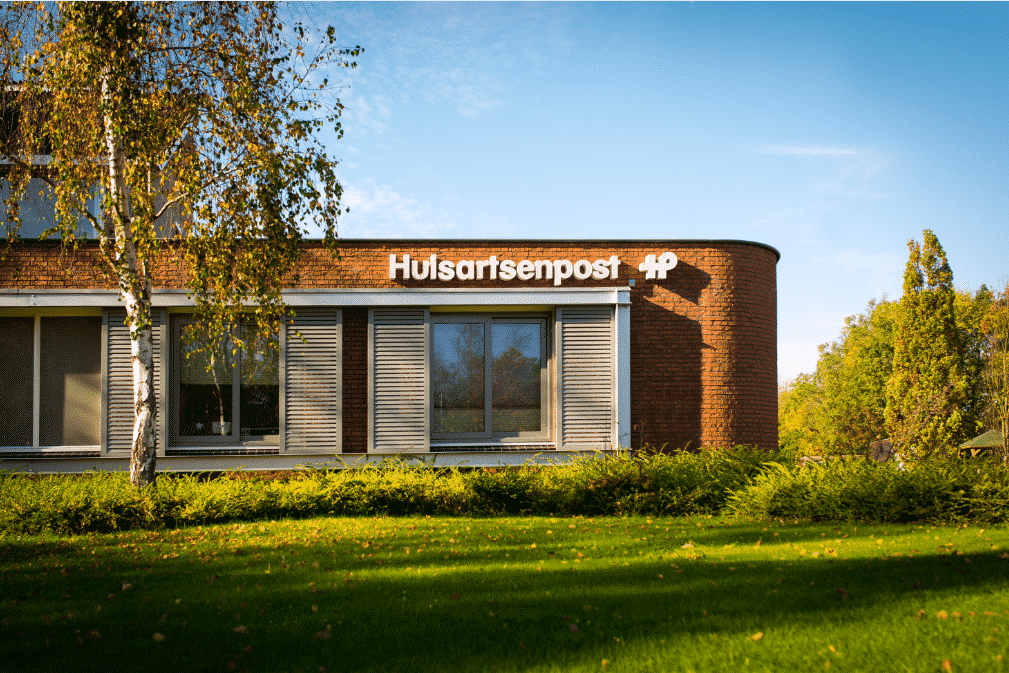
Mobile vaccination teams on the road in the region.
22-03-2021 -Source: door-to-door newspapers
At the beginning of March, five mobile vaccination teams went out for five days to vaccinate 700 vulnerable people in 75 institutions in the Dune and Bulb Region and Holland Rijnland. The vaccination teams were manned by 13 drivers, 15 general practitioners and 20 doctor’s assistants from Huisartsenposten De LIMES. “It was a goosebumps moment every morning when you saw those cleanly washed cars neatly lined up for departure with a motivated team and a valuable load,” says doctor’s assistant Yvonne van den Ende, referring to the vaccination team and the coveted Moderna vaccine. In an interview, some employees of the GP posts talk about this complicated, careful but above all cheerful exercise.
Doctor’s assistant Ingrid Ludlage will always remember that very first patient of an institution in Lisse : “He was already waiting for us at the gate of the house. Bring on the vaccine, he said bravely. Despite the fact that he found it quite exciting, he welcomed us with open arms. That’s what you do it for.” Yvonne continues: “People were eagerly waiting. We were warmly welcomed and they thanked us on departure. It has been the outing for everyone for a year now. The same was true for us as a team. You now come to people when they are not sick. It’s just a lot of fun.”
At the end of January, the GP posts De LIMES in Voorhout, Leiderdorp and Alphen received the assignment from the RIVM to vaccinate vulnerable people who have their own GP but live in (small-scale) institutions. An impressive system was then quickly set up. Vaccination coordinator Corline de Groot sums up some of the topics that preceded the actual execution of the mega job. “Drawing up vaccination schedules, route schedules, timetables, providing the necessary materials, vaccination cards, putting together teams, communicating with institutions, registrations and so on. Add to that the necessary attention to the applicable procedures and guidelines that must be complied with in order to understand that this is a mega job. What helped enormously was the smooth cooperation with the hospital-pharmacy of the Alrijne where the vaccine could be stored and who lent us portable coolers with temperature logging.”
On February 18, a bulk of 750 vaccines, out of a total of 1450 vaccines delivered, were delivered to institutions that provided the vaccination for their residents themselves. On 19 February, the vaccination teams went out for the first time. General practitioners Nicole Randsdorp and Silke van de Vliet were both impressed by the complexity of this process. “In the Netherlands, we do things very much as they should. And that means that it is complex but also careful. In addition, this target group is not full of productivity. You have to take the time to vaccinate these people. There was one elderly man so happy that he went to do a little dance in the waiting room. As an audience, he had all kinds of ladies in wheelchairs,” says Silke. Nicole adds: “This vaccination process requires a lot of effort from a lot of people. To the outside world, it seems like it’s not progressing, but you can’t escape all those logistical steps.” Dave Groenland, one of the drivers of the vaccination teams, was also impressed by this process. “It ran like a well-oiled machine. In one house, they even had a hoist completely shielded with sheets to ensure the privacy of residents.” How did Greenland experience transporting the vaccine as a driver? “As a driver, you are very careful with that, you pay attention to the passability of the routes, where you park and so on. It’s like having a very vulnerable patient in your car.”
This week there will be a repeat of moves in connection with the second shot. All employees indicated that they were happy to be able to contribute to the struggle to break open society, albeit slowly but carefully. In any case, this first exercise has been brought to a successful conclusion.

